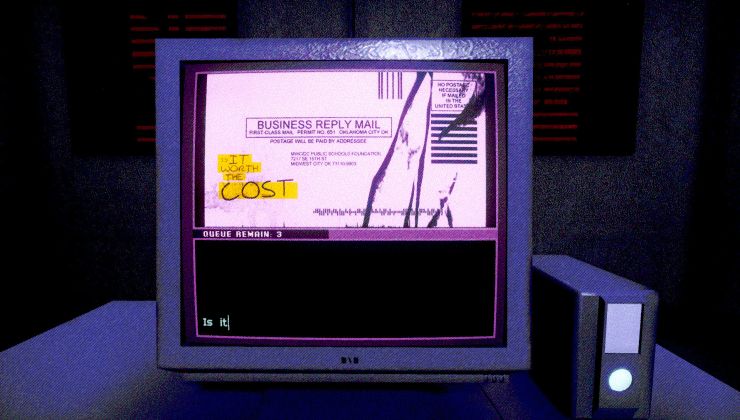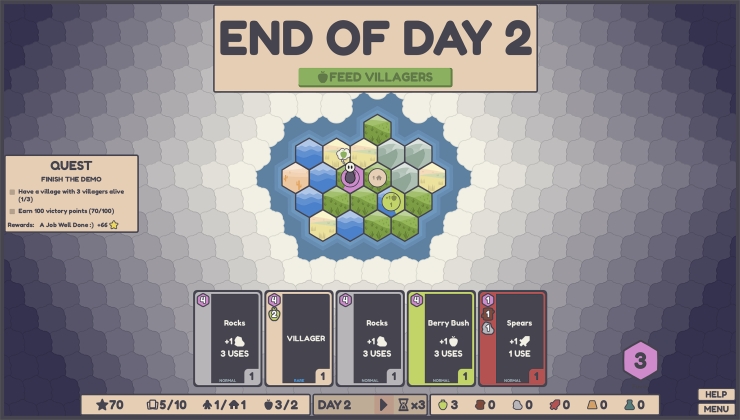A new lawsuit was filed earlier this month in the UK that alleges Valve, owner of Steam, has been "overcharging 14 million PC gamers and abusing its dominant position in the UK".
First reported by the BBC, the claim was filed by Vicki Shotbolt, the founder and CEO of Parent Zone. Shotbolt is also on the executive board of the UK Council for Child Internet Safety and is a trustee for MILA the media literacy and information alliance.
There's even been a dedicated website set up for this lawsuit under steamyouoweus.co.uk, with Shotbolt setting up a company named Vicki Shotbolt Class Representative Limited to bring this action.
From the claim website:
Valve Corporation faces a £656 million collective action claim for overcharging 14 million PC gamers and abusing its dominant position in the UK. Valve owns and operates Steam – the largest digital distribution platform for PC games in the world.
Companies who hold a dominant position in a market are not allowed to charge excessive or anti-competitive prices. They also cannot impose other unfair trading conditions that prevent or hinder others from competing with them.
We believe Valve Corporation has been unfairly shutting out competition for PC games and in-game content, which has meant that UK customers have paid too much for these products.
Vicki Shotbolt, a leading campaigner for children’s digital rights, filed the claim, via Vicki Shotbolt Class Representative Limited, on behalf of all affected gamers at the Competition Appeal Tribunal 5 June 2024.
Vicki accuses Valve Corporation of shutting out competition in the PC gaming market by forcing game publishers to sign up to pricing restrictions that dictate the lowest price games can be sold for on rival platforms.
This has led to UK consumers paying too much for PC games and add-on content, and has enabled the gaming giant to continue charging an excessive commission – of up to 30% – to publishers.
Represented by Milberg London LLP, it's worth noting this is not their first rodeo, as they're also going after Sony for £5 billion.
Natasha Pearman, the partner leading the case, says: “Valve has a had a stranglehold on the PC games market for a long time and with this claim we’re challenging the status quo. Competition law is there to protect consumers and ensure that markets work properly. When they don’t work properly and consumers are harmed, collective actions of this kind provide consumers with a voice and a way of holding big companies, like Valve, to account. We’re delighted to be working with Vicki to seek compensation for UK consumers.”
It boils down to their three main issues that they claim:
- Price parity obligation clauses: We say that Valve Corporation imposes price parity clauses that restrict and prevent game developers from offering better prices on PC-games on rival platforms, limiting consumer choice and harming competition.
- Tying: We say that the restrictions Valve Corporation imposes, that mean the add-on content for games must also be purchased from Steam, restricts competition in the market.
- Excessive pricing: We argue that Valve Corporation has imposed an excessive commission, of up to 30%, charged to publishers, that resulted in inflated prices on its Steam platform.
The first point is one we've heard repeated many times before, but there's never been any proof on it. Which perhaps the Wolfire lawsuit and this may actually bring to light. An accusation doesn't necessarily mean they're right though. Something people get confused on often is Steam Keys, which are completely separate to Steam Store purchases. Valve do ask developers not to "give Steam customers a worse deal than Steam Key purchasers", but again, that's specifically for Steam Keys.
This sounds very similar to the case that Wolfire brought up against Valve in the US.
I've reached out to Valve press for any comments on it. Will update if they reply,
Edit: everyone knows these people are just trying to use the courts to make money off of valve. Companies who engage in patent trolling or litigation trolling should be forced to pay.
Last edited by Cato-the-younger on 12 Jun 2024 at 6:22 pm UTC
Keeping prices consistent makes it better for the consumer, and on that note the prices on steam are set by the developers/publishers.
Valve is the most used platform because it's basically the best, there's no monopoly here, there's many of other alternatives that people are freely able to use.
I'm kind of neutral on the suit itself. I mean, I like Valve, but let's face it, they're probably doing some of that stuff. If we're going to have a functional monopolist controlling a very dominant platform, I'd rather it was Valve, but probably it would be better if we didn't have that.
I've been thinking lately, though, that Valve is really by far the best outfit controlling such a platform. Look at the music industry--there's a couple players controlling everything (spotify, Apple, Ticketmaster) and the landscape they have established has led to most musicians finding it impossible to even come remotely close to making a living doing music; the remuneration for musicians has imploded, literally a fifth or something of what it was just 20, 25 years ago. Google search is becoming more and more enshittified, as are all the social media platforms, Amazon cheats both its customers and the other vendors who have little choice but to use its platform, and so on. But PC gaming still sees plenty of surprise hits from indy developers, and Valve does not systematically shit on them. There is no indication that Valve is jimmying its game discoverability to favour anyone for payola. They collect the toll, but in return they still seem dedicated to providing a good platform that works--they don't always succeed, but I've never seen anyone claim that they're deliberately messing it up the way Google are deliberately messing up their search.
Last edited by Purple Library Guy on 12 Jun 2024 at 6:37 pm UTC
Point 2 is sounds fair in theory, but it would be a practical nightmare.
Point 3 has no chance. Although it does have some sort of tie in with point 1.
This makes little sense, 30% is pretty industry standard.Some people think it's not a reasonable standard though. I think it basically comes from Apple setting 30% for iTunes--just a rule of thumb that got established as what the traffic would bear. Nothing sacred about it. And none of the people charging it have been very keen to let anyone get a look at their revenues and expenses to see if it's reasonable, so it's hard to tell if it is, in fact, a reasonable toll--or if it's reasonable in some industries and less so in others. iTunes doesn't exactly have to host everyone's saved games, for instance, or their mods, or do frequent version updates to everyone who bought some song, et cetera. So taking 30% for a music store may be much less reasonable than 30% for a computer game store.
#2…how do they expect this to work? I buy a game on Steam, then buy the expansion on EGS?
#3: I love this repeated assertion that 30% is "excessive" with no attempt to define the term or what wouldn't be considered excessive (29%? 1%?). It's completely subjective. [30 seconds of Googling](https://www.serkantoto.com/2020/12/30/price-video-console-game-digital-physical/) suggests that, when released on physical media, stores take about…30%. How horrible. We'd better go after anyone who sells physical copies of games. 🙄
2. Not feasible to have platform-independent dlc at the moment without an inconvenient solution
3. Literally almost everyone uses the 30% standard. If they want that changed they should push for legislation that sets an industry maximum because from my understanding the court can’t do shit if there’s no real precedent for a this
Valve is the de facto platform because A) it has the most features and B) it is one of the most open (among proprietary stores/launchers). I can add non Steam games to Steam. Naturally Steam is where I want to be. Valve hasn't trapped me. They have provided me luxury, and I have locked myself in because every other storefront is basically a dumpster fire.
I don't know how much EGS deserves, but it's less than Steam. They offer less features. It makes sense that Valve deserves more for offering more.
And I only bring Epic into this because this is the same kind of lawsuit they bring up all the time, and I would be not even 1% surprised if we find out later that this whole thing is partially backed by them.
Point #1 is a tough one. In the modern internet age expecting the price to be the same everywhere rather than have to shop around for the best deal is weird, but also nice. This doesn't mean "You cant lower your price" it just means "you can't lower your price elsewhere without lowering it here as well." Call of Duty Black Ops (the old one) is $40 on steam still. That's not Valve's fault that the game devs aren't lowering prices.
Point #2 is stupid. Because it's not entirely true. I can run modded games on steam just fine. I would bet that if I were to download a base game for steam and then install a DLC over the base game, when I launch the game, it would work... The tricky part is that there is no way to to install the DLC that way. That's on the game devs themselves for not providing alternate installation options. I also can't buy the Elden Ring DLC from the Playstation Store and have it work on my Xbox version of Elden Ring. TBH, I would love it if the "you just bought a license" part of life went away. if I could validly say "I own the right to play Elden Ring, buying it once gets me the ability to play it on any platform", but I can't. You buy a license to a single platform, and that platform's base game isn't compatible with the DLC from another platform. There are a lot of things wrong with this but Valve isn't one of them.
Point #3 I already ranted about at the top. If anyone has actually earned 30% it is Valve (at least compared to alternatives).
About point 3, I do think it is too high from a moral perspective, but I don't know how you would make a legal argument against it. It isn't even uniquely bad - competitors in the same industry (like GOG) and in similar industries (like mobile app stores) do the same.
#2…how do they expect this to work? I buy a game on Steam, then buy the expansion on EGS?That seems like a major technological hurdle, so I can see why Valve wouldn't be incentivized to design systems to allow it when it would only lose them money. It also sounds like an incredibly good way to generate hard-to-track bugs if I'm getting my base game updates from Platform A, my expansion updates from Platform B, and then my extra bonus DLC from Platform C and they've all got slightly different versions of the game.
Well, it would be really simple with how it used to work (with physical media and with older downloadable stuff), or with how GOG and itch handle expansions: you get an installer for the base game, and an installer for the expansion, and there is no real reason you have to get them both from the same place. You would need to get matching versions of course, and probably platforms would have to keep older versions for compatibility purposes. (I'm not convinced this is a worse method, tbh - store clients in general tend to be way more of a pain in the ass than an asset for players). It would also be a lot easier if software these days didn't expect you to update your shit daily and fuck you if you don't want to.
When stores design an entire application to manage game installation and update, and to integrate features with the game, sure it becomes difficult to work with different stores. But that is very much a problem that they created for themselves... and honestly if these tools weren't made by stores it wouldn't be an intractable problem: package managers can handle different repositories, and there is no reason middleware for multiplayer or mods needs to be store-specific. The issue is that, as you pointed, a dominant store has no incentive to make their stuff interoperable, making it easier for people to buy elsewhere and for competitors to enter the market. Quite the opposite, in many ways the purpose of offering those services is to "increase customer retention" and cause lock in. Which is exactly what makes anti-trust regulation necessary, companies won't just choose to give up their monopoly (or oligopoly) powers.
The problem is that I don't think a simple lawsuit against one company in particular is a reasonable solution - most tech companies do exactly the same shit. Some do much worse! Maybe it could set up precedent, but most likely it will just fail because it is common practice (even if unjust). I'd love to see regulations that required interoperability between software products and stores and vendors, but that would be a much bigger shakeup than an UK lawsuit could do.
It was the retailers who abandoned the PC market in favour of the console market. If were not for Valve and Steam then PC gaming would have completely disappeared.
As for digital distribution, There are plenty of other platforms on offer. Steam is dominant because they actually LISTEN to gamers.
Hopefully this lawsuit will be tossed out into the trash.
Edit.
Excessive Pricing, I don't see any complaints against MS, Sony, Nintendo.
As for DLC and added content. I have purchased added content from 3rd party stores in the past and redeemed on steam So don't get this argument.
Last edited by finaldest on 12 Jun 2024 at 7:35 pm UTC
While I agree with the last two points, I doubt one could argue any of them in court.
You cannot via court force someone to lower their platform fees, especially not if that fee is the industry standard. An industry standard that is way too high and way beyond what it should be, yes, but that's not what's being argued here.
Isn't the first point simply wrong?
I've seen games on sale plenty of times outside of Steam, while on Steam they were not on sale. Thus making the games cheaper elsewhere.
Or is there some clause that allows this, but only for selling Steam keys?
Last edited by TheSHEEEP on 12 Jun 2024 at 8:20 pm UTC
Well, about point 1 it is what Liam said, people often misunderstand what it means (it is for steam keys, not for the same game in a different store), and while people might choose to price similarly to avoid retaliations it is not something Steam has ever said, and there is no evidence of it.
Even if you only consider steam keys, how is humble bundle still a thing? They shovel piles of heavily discounted steam keys through the door every month. Does bundling games together or having a sale make it ok? If so isn't the point moot, since a competitor could just run sales and bundles endlessly?
I smell Sweeney.
Excessive Pricing, I don't see any complaints against MS, Sony, Nintendo.From the article:
Represented by Milberg London LLP, it's worth noting this is not their first rodeo, as they're also going after Sony for £5 billion.











 How to set, change and reset your SteamOS / Steam Deck desktop sudo password
How to set, change and reset your SteamOS / Steam Deck desktop sudo password How to set up Decky Loader on Steam Deck / SteamOS for easy plugins
How to set up Decky Loader on Steam Deck / SteamOS for easy plugins
See more from me